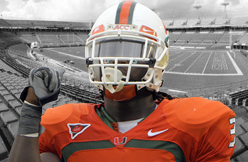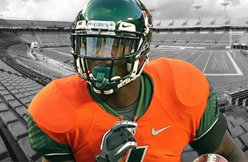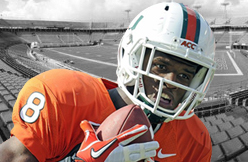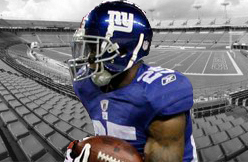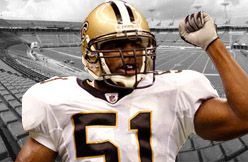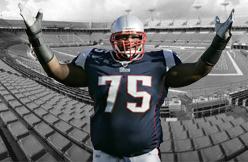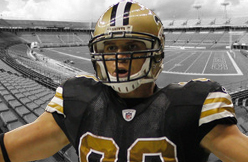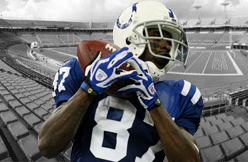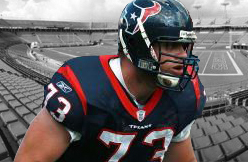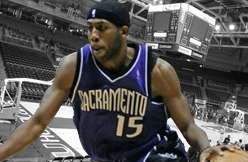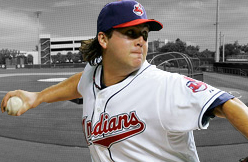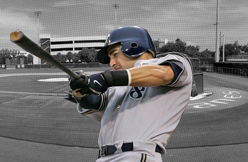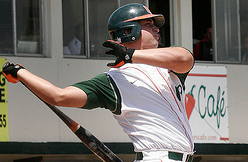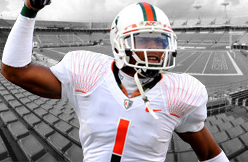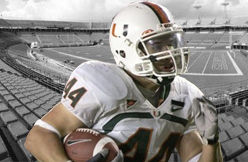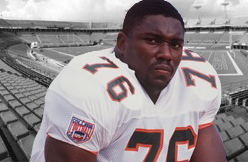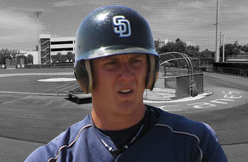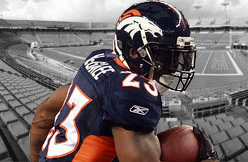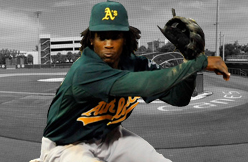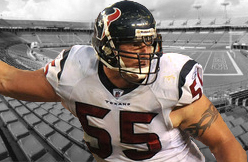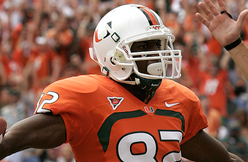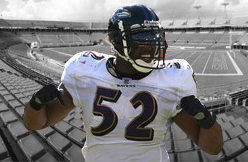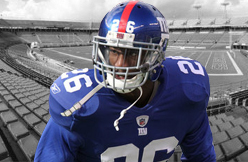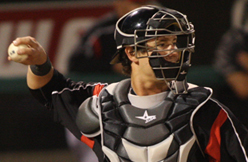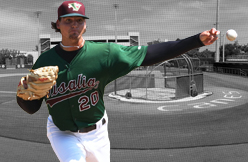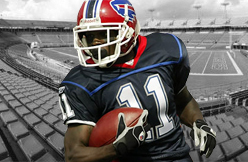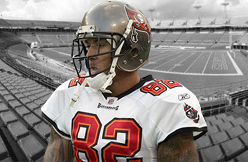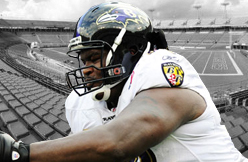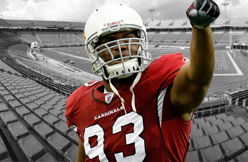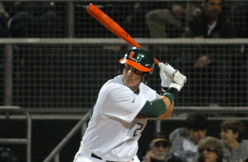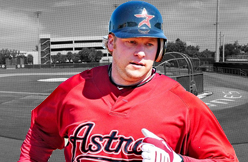PEORIA, Ariz. — When it comes to speed, Padres prospect Yasmani Grandal can't compete with his father and his uncle, both of whom played professional soccer in Cuba. But quickness is another matter, and the minor-league catcher has demonstrated plenty this spring.
With a 6-foot-2, 235-pound frame, Grandal — one of four players acquired in the trade that sent pitcher Mat Latos to Cincinnati on on Dec. 17 — has no illusions about his foot speed. Running is clearly not his forte, and soccer has never been an option despite his family background. Fortunately for Grandal and the Padres, soccer and catching have little in common.
Over the last two weeks, the Padres have tried to tap into Grandal's quickness to help him improve behind the plate after he allowed 19 passed balls in 90 games last season. With the spring training opener Sunday, Grandal wants to test out the new techniques at game speed.
"It's more recognizing what you have to do," Grandal said. "One guy can be quick running. But a slower guy might be quicker with his feet.
"I'm ready to go. I'm just real excited."
Based on early reviews this spring, the Padres must be ecstatic with what they have in Grandal, whom Baseball America recently ranked as the 53rd-best prospect in the minor leagues.
A switch-hitter with power on both sides, Grandal is every bit the physical presence that the Reds believed he was when they drafted him 12th overall in 2008. But with prospect Devin Mesoraco also in the system, Cincinnati had a surplus of good catchers and included Grandal in the Latos deal.
The Padres are the beneficiary, in particular Triple-A manager Terry Kennedy, who probably will take Grandal with him to Tucson when the team breaks camp next month. Grandal, 23, started last season at Single-A with the Reds and advanced to Triple-A before the season ended.
"A switch-hitting catcher with some juice?" Kennedy said. "Yeah, I'll take him."
Grandal expects to make significant defensive improvement this season under the direction of former big-league catchers Kennedy and Brad Ausmus, the Padres' special assistant to baseball operations. Kennedy said the early focus has been on changing the angle of Grandal's back when he's behind the plate. Before the adjustment, Grandal's back was straighter, which makes it harder to block and also raises his target — a no-no in the Padres' system.
Though the changes took a few days to kick in, Grandal said he can already see a difference.
"It's something much easier, so I can be a little faster," Grandal said. "It feels much easier to get down and block. It feels much faster when I throw to second. I work on it about four or five times a week just so I don't have to be thinking about it much."
Kennedy thinks Grandal has looked much better, especially after he began to get more comfortable with his pitchers.
"We'll have to watch in the games, but he takes his defense very seriously," Kennedy said. "He's not just a one-way guy. He wants to be a good catcher."
Grandal first played catcher when he was 15, nine years after he picked up baseball and five years after he started in Little League in 1999, when he and his mother moved from Havana to Miami. Originally, at age 4, Grandal tried to follow in the footsteps of his father, Jose Avelino Grandal, and uncle, Gustavo Herrera, who played professionally in Cuba in the late 1970s and early '80s. But soccer was never a natural fit.
Padres general manager Josh Byrnes thinks Grandal is athletic, but can't imagine him on the pitch, only catching pitches.
"He's one of the bigger, stronger guys we have," Byrnes said. "Obviously, there's some athletic ability and flexibility. It's part of the position. He doesn't look like a soccer player."
Grandal knows he can't run like one, either. But that's OK. He doesn't need speed to be a catcher.
"I'm much bigger than my uncle and my dad," Grandal said. "They weren't small, but they were fast. I played soccer when I was little.
"I'm not fast at all."

(nctimes.com)




